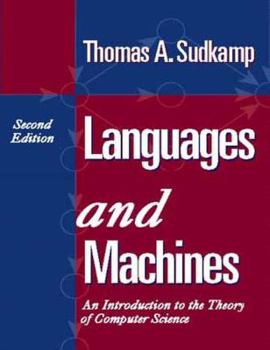Languages and Machines: An Introduction to the Theory of Computer Science
Select Format
Select Condition 
Book Overview
The third edition of Languages and Machines: An Introduction to the Theory of Computer Science provides readers with a mathematically sound presentation of the theory of computer science. The... This description may be from another edition of this product.
Format:Hardcover
Language:English
ISBN:0201821362
ISBN13:9780201821369
Release Date:November 1996
Publisher:Addison Wesley Publishing Company
Length:500 Pages
Weight:2.03 lbs.
Dimensions:1.1" x 6.6" x 9.5"













